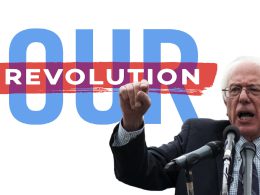By Kevin Henry
Most of the numerous books, films and TV shows about the Troubles either demonise those involved in the republican movement or romanticise their struggle. The recent Disney+ hit Say Nothing (2024) is more nuanced. Centred on Dolours and Marian Price, each episode focuses on different aspects of their activities, from joining the IRA, bank raids, the counterproductive approach of “bringing war to the British” in the Old Bailey bombings, their hunger strike when held in a men’s prison in England and the end of the IRA campaign in the 1990s. Interspersed is a focus on the horrific murder and disappearance of Jean McConville, one of the Disappeared.
Utilising Dolours’ accounts to the Boston College ‘Belfast project’ gives the characters concrete experience of the Troubles. However, a more overarching sense of the period is lacking. For example, with the exception of the theme around Jean Mcconville’s killing, an exploration of the sectarian character of the Troubles, including tit-for-tat killings, is absent. The depiction of the Price sisters’ actions as part of the Unknowns unit, which was responsible for disappearances, is shocking and illustrates some of the real consequences of a secretive and unaccountable organisation.
At the start of the show, Dolours and Marian Price, who were involved in the early civil rights movement, are advocates of non-violent resistance. Their father, a veteran of the IRA’s previous border campaign, is dismissive, arguing the British state only understands physical confrontation. Dolours responds by describing the border campaign as a complete failure. This reflects the outlook of a generation of young people involved in the civil rights movement. They were completely opposed to the Unionist state, which relied on discrimination in jobs, housing allocation and Gerrymandering of votes. However, they had no faith in constitutional nationalism or the failed methods of the IRA. Instead, they searched for an alternative, resulting in the growth of the left wing of the Northern Ireland Labour Party and left republican groups like People’s Democracy.
However, the sisters’ experience of violence at Burntollet when a civil rights march was attacked by the state and loyalists turned them towards what would become the Provisional IRA (Provies). This is important as often accounts of the Troubles don’t deal with why people joined the IRA – primarily in reaction to atrocities committed by the British state and loyalists, including internment, Bloody Sunday or the treatment of hunger strikers. Likewise, young Loyalists joined the UVF or UDA often in response to sectarian actions by the IRA, including Bloody Friday.
Confusingly, the show jumps from Burntollet to the Falls Road Curfew when the Price sisters seek to join the IRA. It therefore jumps over important aspects of the period, which saw many events, including mass resistance, particularly of the Catholic population as well as the entry of British troops. In this context, we meet Adams, as a local IRA leader, despite his real-life denials.
As is implied by the series, the IRA campaign, based on minority support, was incapable of defeating the British state. Concretely, It served to inflame sectarianism and was led by an unaccountable and secretive leadership, which only encouraged a macho culture strikingly seen in the show with Adams’ consistent use of the term “child” to refer to Dolours Price. The Price sisters’ request to join the IRA reflects the impact of feminist struggles as they are not prepared to accept a secondary role as members of Cumann na mBan. In the scene, Adams says many in the IRA are opposed to women joining, but the only view that matters is the Commanding Officer who took a pragmatic view i.e., the needs of the conflict.
The depiction of the Price sisters’ hunger strike is horrifying, including the use of the barbaric practice of force-feeding. In this way, the series deals not only with the brutality of the British state, which meted out inhumane treatment against prisoners, but also shows the strength and determination of the characters. Force-feeding can have long-term and very severe consequences, including anorexia, as Marian Price has also spoken about.
The final episodes deal with the 90s until today. Here, we see individuals who committed to the armed campaign as broken people, either using substances, including alcohol or doubling down on past methods by now supporting the dissidents. The peace process is viewed as a sell out, with prominent republican Brendan Hughes saying it was not worth one life. Others, like Adams, have had political careers and deny any involvement in the IRA.
However, some people pointed to a different road, including the forerunner of the Socialist Party – Militant. Based on mass struggle organised democratically and crucially able to win over Protestant working class people in a common struggle against discrimination and oppression, as well as against capitalism and for revolutionary change in Ireland and internationally, a different road was possible. Say Nothing encourages many to examine this crucial historical period to seek alternatives to sectarian conflict and division. This is an urgent task given how our past very much shapes the present and the future in the North in many ways. Material such as Common History, Common Struggle (Herald Books), written by Peter Hadden, should be read by anyone seeking to explore how an alternative to sectarian forces on both sides, based on working-class unity and solidarity, can be built.










